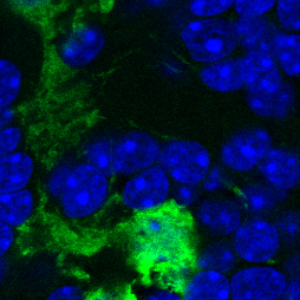An iPSC is a type of so-called ‘pluripotent’ stem cell, and it can be differentiated into essentially any cell in the body, including cells of the brain. iPSCs can be generated from skin or blood cells, and then ‘induced’ in the lab to become pluripotent. These cells can form a group of cells called an ‘iPSC line’ and may survive indefinitely.
Human iPSCs are useful research tools, especially for studying the effect of genes on disease risks and for the development of new drugs and methods in a human system. In the context of pediatric cancer research, they are a useful addition to the experimental toolbox that includes mouse models, cell lines, and PDX models. With strict quality control measures, iPSCs may serve as a useful model for normal development and tumorigenic transformation in vitro. Patient-derived lines from patients with mutations in hereditary predisposition genes may be an especially useful model to understand how different genetic backgrounds predispose patients with the same lesion to different types of cancer with different penetrance and latency.
Our lab uses iPSCs to understand medulloblastoma and glioma development. We are part of the Cancer Predisposition Registry in Germany, with the goal to develop patient-derived iPSC lines to better understand why some people are predisposed to certain types of pediatric cancer.
To read more about iPSCs in cancer research, check out our recently published review:
